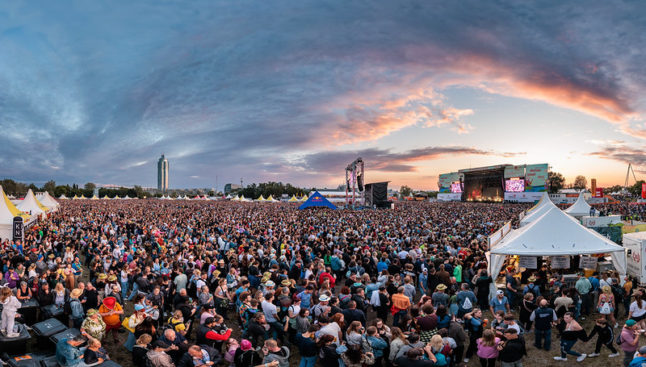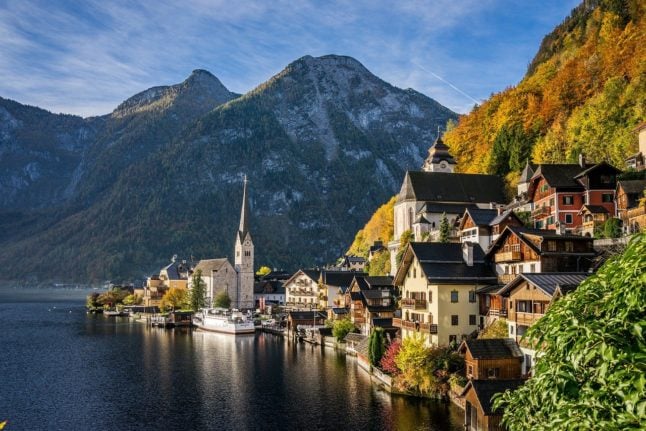Here are some of our favourite events in Austria during 2024 and information on how you can get involved.
January – March
Ball Season – Nationwide, January 1st – February 29th
Austria – particularly Vienna – is world famous for the extravagant balls that take place throughout January and February, bringing back a little of the grandeur of Habsburg rule.
Highlights include the ball of the Vienna Philharmonic Orchestra and the Vienna Opera Ball, where guests from around the world dance the waltz popularised in the capital during the 19th century.
Let’s be frank: Many tickets for some of the country’s most famous balls will have sold out months ago. However, all is not lost. If you live in Vienna, Salzburg, Graz or Linz, you will find that many of the smaller balls taking place still have plenty of tickets available well into the season. Check out our guide for more details.
IN PICTURES: What are the best balls this season in Vienna?
Mozart Week – Salzburg, various locations, January 24th – February 2nd
Austria’s most famous artistic and musical talent was born in Salzburg, celebrated yearly with a series of concerts, talks and performances throughout the city. This year, many events look at the musical genius through the lens of his (in)famous relationship with Antonio Salieri – as memorably depicted in the 1984 film, ‘Amadeus’.
You can find a program of events and book tickets through the Mozart Week website.
Holbein. Burgkmair. Dürer: The Renaissance in the North – Kunsthistorische Museum Vienna, March 19th – June 30th
As rulers of the Holy Roman Empire for nearly 800 years, the Habsburgs were avid art collectors. Among their collection were many artworks by the masters of the Renaissance in northern Europe – Hans Holbein, Hans Burgkmair and Albrecht Durer.
These artworks form the basis of a major new exhibition in collaboration with Germany’s Stadel Museum. More than 160 paintings, sculptures, and engravings are featured, showing how the Renaissance developed north of the Alps, mainly focusing on the German city of Augsburg.
More information and tickets can be booked on the KHM website.
Easter Markets – Vienna, mid-March – March 31st
While times changed, Austria was a profoundly religious, Catholic nation for centuries. As such, festivals such as Easter were a cause for a lot of celebration, especially in Vienna.
Throughout the final two weeks of March, markets occur at iconic locations such as Schönbrunn Palace, around the Mariensäule in Am Hof, and outside the Schottenstift in the beautiful Freyung district.
While there’s the usual range of arts, crafts and tasty treats, watch for gorgeous handcrafted easter eggs, real and carved, painted with traditional designs – a unique souvenir.
The Visiting Vienna website has an excellent guide to some of the best, which you can find here.
Read More: First since 2019: Here are the best Easter Markets in Austria.
April – June
Nova Rock – Nickelsdorf, Burgenland, June 13th – 16th
Austria’s biggest rock festival takes place in early June, close to the Hungarian and Slovakian borders, near the (very) small town of Nickelsdorf.
This year’s lineup is quite the nineties tribute, with Green Day, Jane’s Addiction and Mudvayne all performing on the first night. You can also catch John Wick himself, Keanu Reeves, performing with his band Dogstar.
Other big names include Maneskin, Avril Lavigne, and Alice Cooper.
More lineup additions, news and tickets can be found on the Nova Rock website.
Donauinselfest – Danube Island, Vienna, June 20th – 23rd
It’s been called the biggest musical festival in the world by visitor numbers, and it’s completely free. The Donauinselfest has been taking place across many stages on the Danube Island in Vienna, attracting over 2.2 million visitors in 2022.
There’s no word on the lineup yet – that will come closer to the date, but when it’s free, who cares?
You can learn more about this year’s festival on the Donauinselfest website.
Austrian Grand Prix – Spielberg, Styria, June 28th – 30th
Revheads rejoice! The Austrian F1 Grand Prix returns to the Red Bull Ring near Spielberg at the end of June, with five races scheduled.
Unfortunately, single-day tickets are already gone, but packages for the complete event are still available (albeit going quickly).
Race schedule, news and tickets can be obtained from the official F1 website.
July – September
Kiritog Altaussee – Altaussee, Styria (Salzkammergut) – August 31st – September 2nd
Late summer is an excellent time for folk festivals, and the Kiritog Altausseer is one of Austria’s favourites. It’s the real deal: Free entry, great food and drink from local producers, fewer rides, and blasting music from other beer festivals.
Starting in 1960, this year, the festival celebrates its 62nd birthday and attracted around 20,000 visitors last year. A fantastic achievement for a beer festival organised by a local volunteer department!
More information on this year’s festival can be found here.
Salzburger Rupertikirtag – Domplatz, Salzburg, September 20th – 24th
Salzburg’s Rupertikirtag festival has a slightly older pedigree than that of Altaussee.
While the modern iteration of the celebration is only 47 years old, there’s been a folk festival taking place in the same place at the same time in Salzburg for centuries – evidence exists for it taking place as early as 1331.
Taking place in the area around Salzburg’s cathedral, the celebration honours St Ruprecht, the city’s patron saint.
Around 100,000 visitors arrive each year to enjoy good food and beer and browse a tremendous range of arts, crafts and other goods on sale.
More information about this year’s festival can be found on the official website.
October – December
Christmas Markets – Salzburg, late November – December 24th
Late last year, we declared Salzburg superior to Munich in terms of its Christmas offerings, and it deserves to be described as one of the capitals of Christmas. The city’s Christmas markets are some of the very best around.
The city’s primary offering, the Christkindlmarkt, has a heritage stretching back over 600 years, with the backdrop of the city’s cathedral and the looming Hohensalzburg providing the ultimate stage on which to enjoy some Glühwein and Stollen.
More information on Salzburg’s Christmas offerings can be found on the city’s website.
What have we missed? Let us know in the comments or email us at [email protected], and we may feature your suggestions throughout the year.



 Please whitelist us to continue reading.
Please whitelist us to continue reading.
Member comments